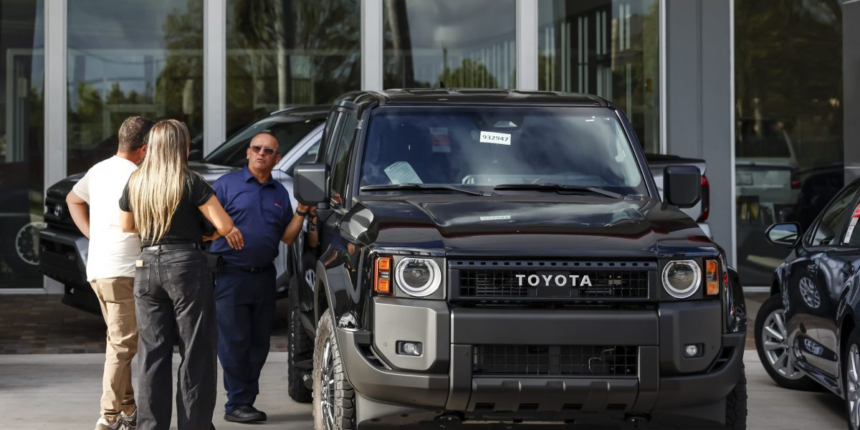New-car buyers looking to dodge auto tariffs may suffer an unintended financial consequence as a result of lengthy loan terms and high interest rates.
To mitigate these steep prices, Americans are extending the length of their loans, with about 20% of car loans now on seven-year terms, according to Edmunds. The consequence for consumers may be that in the rush to dodge tariff-induced price hikes, they’ve saddled themselves with a greater financial burden.
“People are quick to buy something right now because they know that there’s a timeline associated with this,” Caldwell said. “The real risk for a lot of folks is they’re getting into a car that maybe they weren’t necessarily ready to purchase or they purchased a bit earlier and kind of made a snap decision. They could be signing up for unfavorable loan terms or monthly payments that seem difficult.”
According to Kishore Kulkarni, a professor of economics at the Metropolitan State University of Denver, this trend is justified: Purchasing a new car to dodge tariffs makes financial sense for many.
“We are almost guaranteed to see an increase in price in the future,” Kulkarni told Fortune. “And if you are ready to buy a car, then you better buy it today.”
“There’s no way, given their margins have fallen back to where they were before COVID, on absolute terms, that they can essentially absorb higher costs of tariffs and not pass a good share of that onto the buyer,” Miller told Fortune.
The movement around tariffs also puts dealers in a challenging position, Edmunds’ Caldwell said. With so much uncertainty about how long tariffs will be in place, dealers may be reluctant to accept trade-ins. They may buy the cars at a high price due to tariff-related price hikes, only for the taxes to no longer be relevant by the time they resell the car—likely costing them thousands.
“[The Federal Reserve] would have incredibly good confidence that either these tariffs are not inflationary as believed, or until they see evidence that the economy is slowing down so much that they need to do something,” Miller said. “And unfortunately, at that point, that usually means that we’re going into a recession.”
Despite these risks, with interest rates unlikely to drop anytime soon—and the cost of new cars inevitably rising in the coming months—Caldwell said if she were in the position of many Americans in search of a new car, she would be among the crowds at dealerships.
“The motivations of buying a car are very different from anything else,” she said. “When people need a car, they need a car.”









